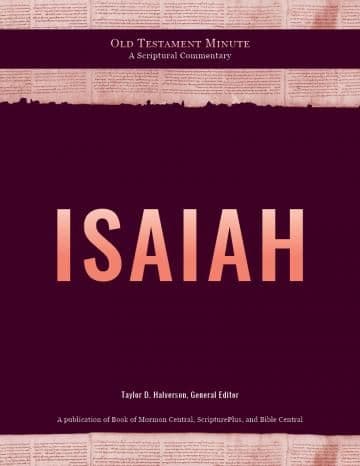Book
66 Chapters

Isaiah 36 is a historical account and not poetry. When Hezekiah served as Judah’s king, King Sennacherib of Assyria and his armies conquered most of Judah’s fortified cities (36:1). After that, Sennacherib sent his armies, led by his chief officer, to Jerusalem (36:2) to demand gifts and to inform Judah of the terms of surrender, which included the deportation of the inhabitants of Jerusalem (36:8, 16–17). The chief officer instructed Jerusalem’s inhabitants not to rely on Egypt (36:4–6) or God (36:7, 10, 15, 18–20) for deliverance. Hezekiah paid Sennacherib 30 talents of gold and 300 talents of silver, with the hope that the Assyrians would depart from the land and allow Jerusalem’s inhabitants to live in peace (2 Kings 18:14–16). Or, perhaps, Hezekiah was trying to buy time with this payment, so that he could take time to prepare for Jerusalem for Assyria’s attack? Sennacherib, however, betrayed Hezekiah and ordered his armies to destroy Jerusalem.
fourteenth year. Approximately 701 BC.
chief officer. Some English translators write the name Rabshakeh, but Rabshakeh is probably a title of a high-ranking officer of the Assyrian military.
Eliakim/Shebna/Joah. Three officials of King Hezekiah (regarding Eliakim and Shebna, see also 22:15–25).
broken reed of a staff. The chief officer compares Hezekiah’s trust in Egypt to one who trusts in a reed for support as he walks; when the reed snaps, it is driven into his hand (see also Ezekiel 29:6).
remove his high places and altars. A reference to Hezekiah’s sweeping religious reforms (2 Kings 18:4, 22; 2 Chronicles 29:15–19; 30:14).
two thousand horses. The chief officer mocks Hezekiah and his armies by offering them two thousand horses, but only if they can provide enough soldiers to ride them.
Lord said to me. The chief officer claims that Jehovah commissioned Assyria to destroy Jerusalem.
language of Judah. The Hebrew language. The chief officer was bilingual and spoke to the people of Judah in Hebrew, their native tongue, in order to openly intimidate and mock them (see also verses 13–20). Hezekiah’s officials desired the chief officer to speak Syriac (or Aramaic), the common tongue of the Assyrians, so that the onlooking Jews would not understand the negotiations. But the chief officer ignored the officials and spoke Hebrew.
Make a blessing. This is a literal translation from the Hebrew; the chief officer’s words are a sham, designed to make the people think that paying a tribute is a blessing. But the king is really saying “pay me tribute.”
Hamath/Arphad/Sepharvaim/Samaria. Sennacherib conquered these cities before he reached Jerusalem. The chief officer notes that the gods of these cities (which of course were false gods) could not defend their inhabitants from Assyrian conquest.
Book
66 Chapters
Items in the BMC Archive are made publicly available for non-commercial, private use. Inclusion within the BMC Archive does not imply endorsement. Items do not represent the official views of The Church of Jesus Christ of Latter-day Saints or of Book of Mormon Central.